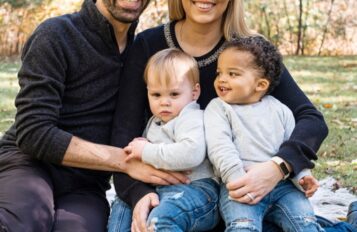An unplanned pregnancy is a difficult, confusing time. No matter what you choose to do, there are no easy decisions.
Basically, you have three options: abortion, parenting or adoption.
Most people know about the first two options. They’re less familiar with adoption.
When it comes to an unplanned pregnancy, adoption is usually treated as a third choice, and a distant one at that. Unless you have a personal connection to adoption, you probably haven’t considered it.
But the more people learn about it, the more comfortable they become.
You actually have two main options when it comes to placing your baby: public adoption or private adoption.
Public adoption
This refers to any adoption that is facilitated by a public adoption agency such as the Children’s Aid Society.
Private adoption
This refers to any adoption that is facilitated by a private adoption agency. Keep in mind, not every province allows private adoption. Whereas Ontario and B.C. do, Saskatchewan and New Brunswick don’t.
With me so far? Here’s where it gets a bit more complicated. Within private adoption, there are three different paths, depending on how much contact and openness you’re interested in having before and after placing your baby.
- Open adoption – exchanging identifying information and contact with the adoptive parents
- Semi-open adoption – exchanging some identifying information with the adoptive parents
- Closed adoption – no exchanging identifying information and no contact with the adoptive parents
So two questions you’ll need to answer are: is adoption right for me? And if so, which option is best?
Placing a baby for adoption is a deeply personal issue, so the decison depends on the individual.
Here are a few things to keep in mind as you consider your choices:
Adoption is permanent
Once you sign the relinquishment papers, your parental rights to your child will be terminated and the adoptive parents will assume responsibility for your child’s upbringing and welfare.
You can have a say in the process
Depending on which path you chose, you have the option to be involved in the process. This could mean anything from choosing and meeting the adoptive parents to keeping in touch with them and your child after the adoption.
Adoption isn’t co-parenting
Although you can play a role in your baby’s adoption, adoption — and in particular, open adoption — isn’t co-parenting. Once your rights are terminated, the adoptive parents will be responsible for all of the day-to-day care and decisions regarding your child.
Adoption involves loss
Many women who have placed their babies in an open adoption say knowing that their child was loved and cared for helped them with the healing process. But no matter which route you choose, all adoptions involves pain and loss. To properly grieve, it’s important to get the help and support you need before AND after the placement.
Most adoptions today are open
Adoption has changed over the years. In the past, most adoptions were closed. Today, about 90 percent have some level of openness. Moreover, in this digital age of over-sharing, even adoptions that started out as closed typically have some elements of openness.

